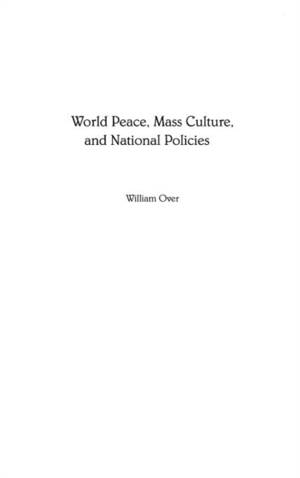
- Retrait gratuit dans votre magasin Club
- 7.000.000 titres dans notre catalogue
- Payer en toute sécurité
- Toujours un magasin près de chez vous
- Retrait gratuit dans votre magasin Club
- 7.000.0000 titres dans notre catalogue
- Payer en toute sécurité
- Toujours un magasin près de chez vous
Description
The author offers an analysis of forms of U.S. mass culture that support, parallel, or critique official national, regional, and intergovernmental peace policy, prevention, and peacemaking. Major popular culture forms such as film, television, news media, peace parks and public memorials, and peace and justice movements are considered as public discourses influencing and reflecting public understanding of peace and war themes. The discussion includes events following September 11, 2001.
World Peace, Mass Culture, and National Policy takes a critical and analytical approach to Washington foreign policy; unilateralist methods; and corporatism as global hegemony. It includes a wide discussion of these issues based on cultural institutions and ideologies of mass culture in the U.S. The work critiques the notion that corporate capitalism and the consumer affluence of the U.S. alone can bring other societies to democratic practice.Spécifications
Parties prenantes
- Auteur(s) :
- Editeur:
Contenu
- Nombre de pages :
- 200
- Langue:
- Anglais
- Collection :
Caractéristiques
- EAN:
- 9781567506822
- Date de parution :
- 30-04-04
- Format:
- Livre relié
- Format numérique:
- Genaaid
- Dimensions :
- 165 mm x 242 mm
- Poids :
- 444 g

Les avis
Nous publions uniquement les avis qui respectent les conditions requises. Consultez nos conditions pour les avis.






